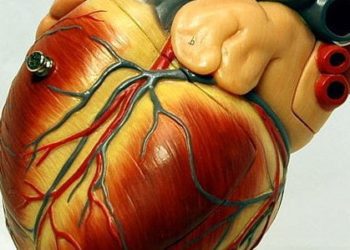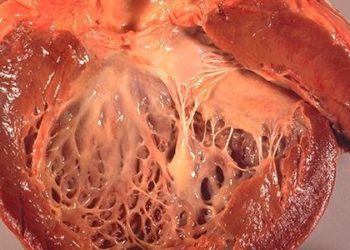Low-dose AAVS3 gene therapy is efficacious for treating patients with hemophilia B
1. Hemophilia B patients treated with the adeno-associated virus (AAV) gene therapy produced dose-dependent sustained factor IX levels.
2. All patients required immunosuppression with glucocorticoids with or without tacrolimus to prevent immune reactions to the vector.
Evidence Rating Level: 1 (Excellent)
Study Rundown: Hemophilia B is an X-linked hereditary bleeding disorder caused by a deficiency in coagulation factor IX. This typically leads to bleeding in musculoskeletal tissues and critical organs with high levels of morbidity and mortality. Hemophilia B is categorized as severe if the factor IX level is less than 1% of normal, which is treated by life-long infusions of exogenous factor IX. Emerging AAV gene therapy utilizing a viral vector carrying a factor IX gene targeting the liver has been previously reported to produce sustained factor IX levels after a single infusion. Though, the efficacy of this therapy has not been extensively studied over multiple infusions. The present study was an open-label, single-dose, clinical trial of FLT180a (verbrinacogene setparvovec) therapy for patients with hemophilia B. FLT180a consists of a synthetic capsid AVVS3 with high hepatocyte transduction efficiency and a variant factor IX gene with a gain-of-function Padua mutation (R338L) enabling higher bioactivity. Ten patients with severe hemophilia B were infused at four different dosages of FLT180a. They showed dose-dependent increases in factor IX levels, which were sustained at long-term follow-up in all but one. Though there was a serious adverse event from the highest dose and there were complex immune responses to the therapy, FLT180a showed promise as a treatment for hemophilia B and warranted further investigation.
Click here to read the study in NEJM
Relevant Reading: Long-Term Safety and Efficacy of Factor IX Gene Therapy in Hemophilia B
In-Depth [randomized controlled trial]: This was a multi-center, open-label, phase 1-2 trial of the FLT180a gene therapy on ten hemophilia B patients. Exclusion criteria included the presence of AAVS3 neutralizing antibodies, history of factor IX inhibitor production, and liver dysfunction. Patients received one of the four dosages of FLT180a: 3.84×1011 vector genomes (vg)/kg, 1.28×1012 vg/kg, 6.40×1011 vg/kg, and 8.32×1011 vg/kg in an ascending-descending adaptive design. Patient ages ranged from 25 to 67. An immunosuppressive regimen was consistently adjusted throughout. The primary outcomes were efficacy, reflected by factor IX levels by week 26, and safety. Secondary outcomes included bleeding, need for factor IX concentrate, and viral genome clearance. Long-term follow-up is planned for 15 years. All patients showed dose-dependent increases in factor IX levels by 26 weeks. Median follow-up was 27.2 months (range, 19.1 to 42.4), where high factor IX activity was observed in all except one patient, who resumed factor IX infusion. The treatment failure was attributed to delayed management of an immune response to the vector. By the data-cutoff date, five patients showed normal factor IX levels (51% to 78%), three had levels from 23% to 43%, and one patient had a high level at 260%. That patient also reported a severe adverse event, an arteriovenous fistula thrombosis, requiring hospitalization. In total, 10% of adverse events were deemed to be related to FLT180a while 24% were associated with immunosuppression. Bleeding rate declined from 2.93 events/year at baseline (range, 0 to 7.33) to 0.71 events/year (range, 0 to 1.70) following FLT180a therapy. Viral genome clearance was not detectable. Throughout the study, ALT elevations were associated with a reduction in factor IX levels and required continuous optimization of immunosuppressive therapy. The study showed the potential of FLT180a as an effective and durable therapy for hemophilia B and emphasized the need for further improved dosing and immunosuppressive regimen.
Image: PD
©2022 2 Minute Medicine, Inc. All rights reserved. No works may be reproduced without expressed written consent from 2 Minute Medicine, Inc. Inquire about licensing here. No article should be construed as medical advice and is not intended as such by the authors or by 2 Minute Medicine, Inc.


![2 Minute Medicine: Pharma Roundup: Price Hikes, Breakthrough Approvals, Legal Showdowns, Biotech Expansion, and Europe’s Pricing Debate [May 12nd, 2025]](https://www.2minutemedicine.com/wp-content/uploads/2025/05/ChatGPT-Image-May-12-2025-at-10_22_23-AM-350x250.png)






